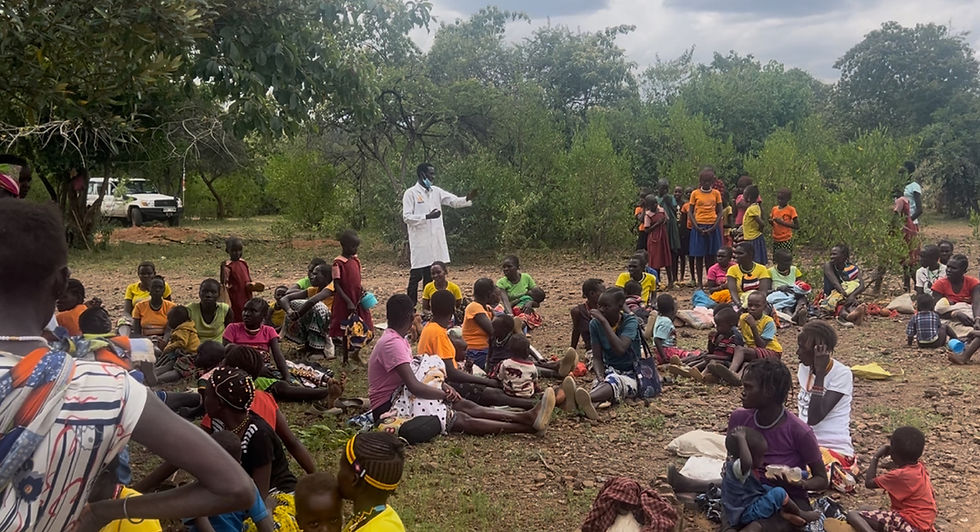A Day of Trachoma Training
- Sarah Weihl
- Jan 31, 2022
- 3 min read
September 2021
Trachoma is one of the three neglected tropical diseases (NTDs) that ACCIH works on. Trachoma is caused by a bacteria that infects the eyes. If left untreated, this can cause permanent blindness. On September 1, 2021, a trachoma sensitization training was held for community health workers. Around 10 AM, community health workers started trickling into the conference hall at the TERMES Center, greeting each other with the now normal COVID-19 safe wrist bumps. After time spent talking with each other, Elijah (who organized this sensitization meeting) started off the day with a song and a prayer. As the attendees stood and sang together there was a huge sense of community in the room. Everyone came together and took the time to be at this training so they could better serve their home communities. At one point during the training, one of the leaders asked everyone to close their eyes and think about how it would feel to be blind. The CHVs responded that they felt uncomfortable and scared. This experience woven into the training helped the CHVs gain an understanding of what it might be like for some of the patients they see - creating empathy for their patients will make them more effective care providers.
The leaders of this sensitization meeting (Elijah, Miriam, and Lorot) discussed the importance of community health volunteers (CHVs) in furthering this work. CHVs are key to linking the communities with the health system. The CHVs are the ones who can help ensure that preventive medicine reaches high risk communities. Using CHVs to do trachoma prevention education in the communities can help reduce the incidence of trachoma (especially severe cases). One of the best ways to prevent trachoma is by washing your face and hands with water to keep them clean of bacteria.
Kenya has fallen behind in its attempt to reach the global goal of trachoma elimination by 2023. Trachoma outreach has not been done in East Pokot since 2019 because of both COVID-19 and security issues. Restarting trachoma outreach programs using CHVs will be crucial to meeting the elimination goal. At this meeting, Lorot discussed a strategy for trachoma prevention and treatment. This strategy uses the acronym SAFE: surgery, antibiotics, face washing, and environmental improvement. Surgery is used in severe cases where the patient is at risk of blindness. Elijah discussed the importance of explaining surgery to a patient in their native language. Ensuring that they understand the minor nature of the surgery and that it has no associated cost is very important.
Elijah made the point that in order to gain the patient’s trust and ensure they receive the education and treatment they need, understanding the culture and beliefs is crucial. Thinking about the way you present yourself and ensuring that it is accepted by the community makes it much more likely that community members will feel comfortable and place their trust in you. After going through important things to remember when going into patient’s homes (like ensuring your body language is communicating openness, wearing culturally acceptable clothes, and speaking a common language) the training closed with a song. The same way it began, ending with a song solidified the community built in the room and exemplified the willingness of these CHVs to work together to improve the health of their communities.




Comments